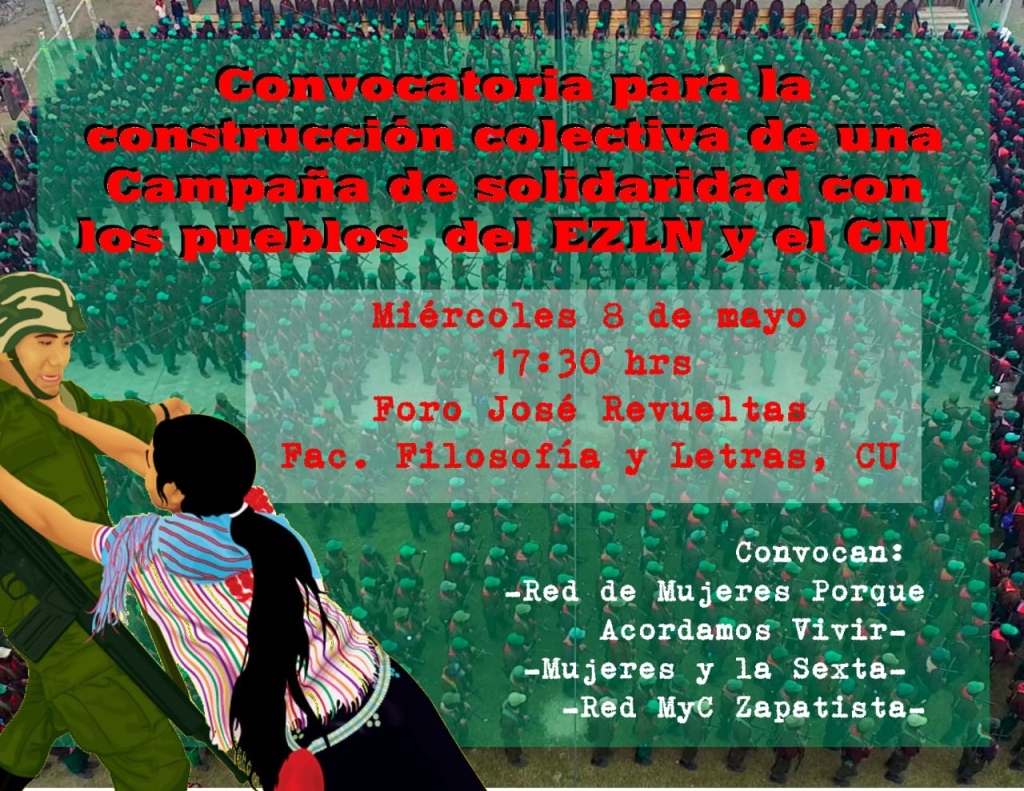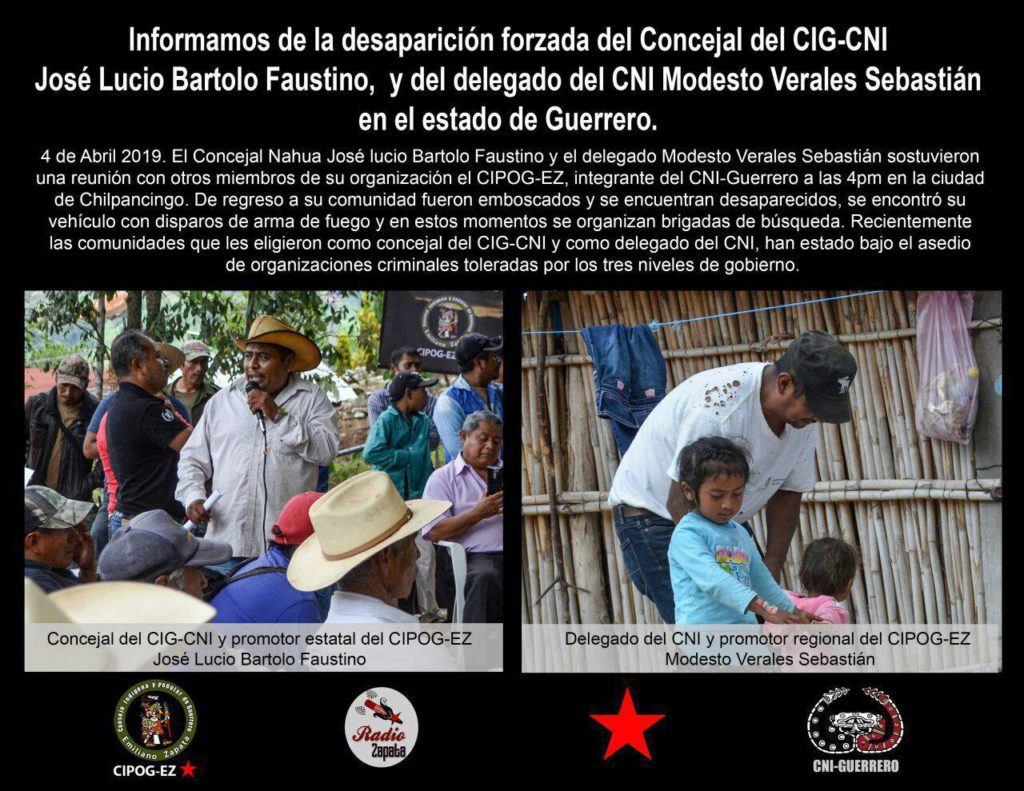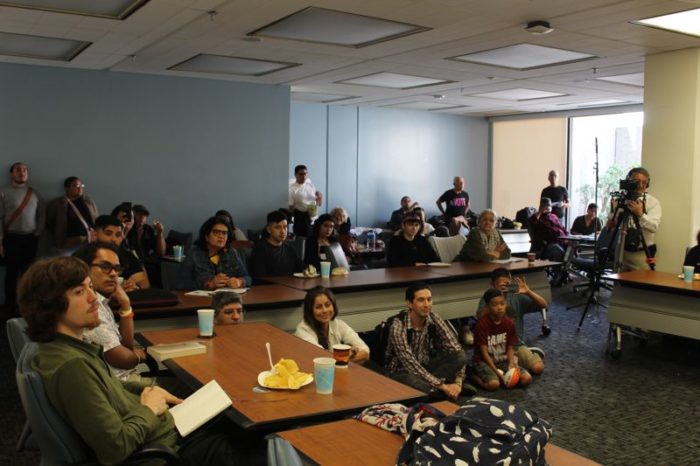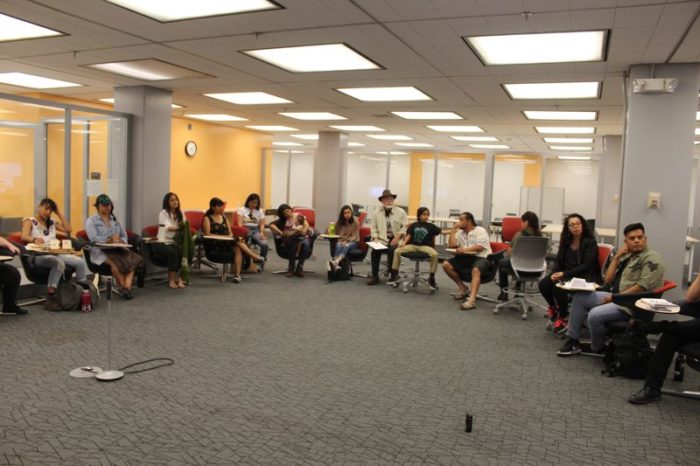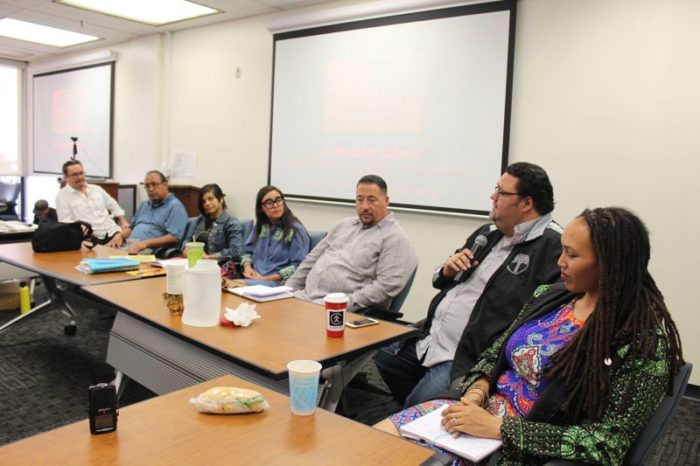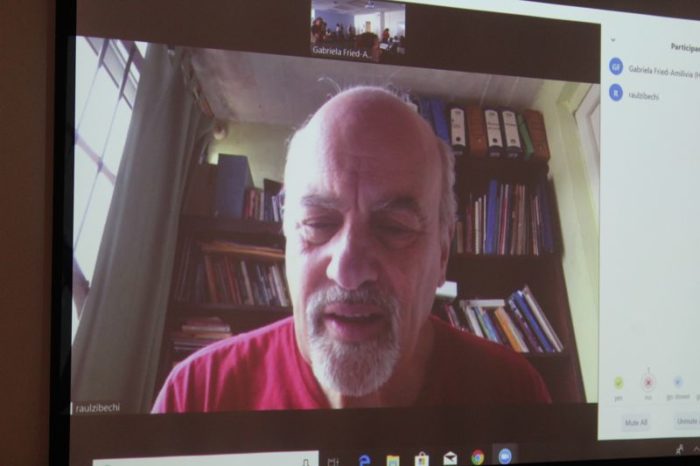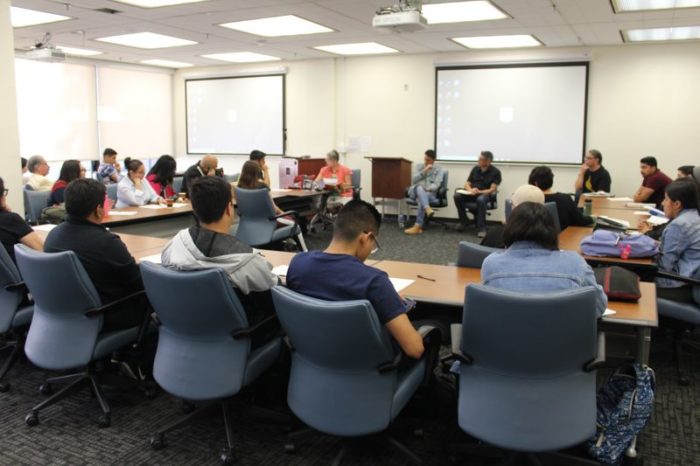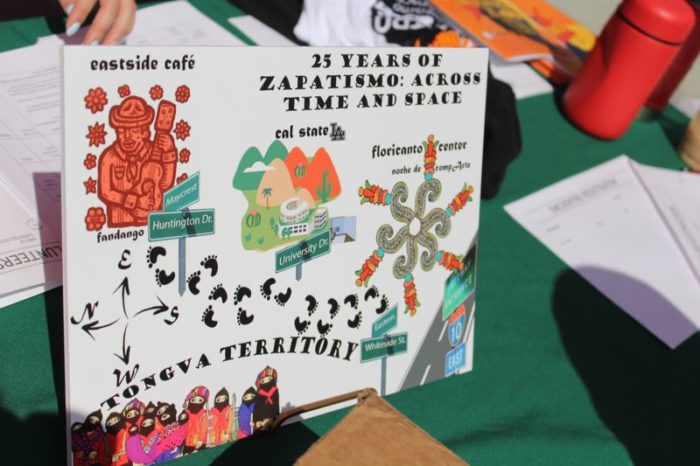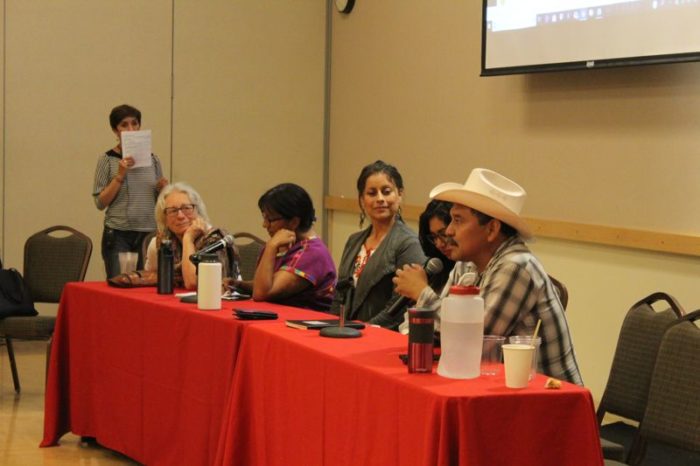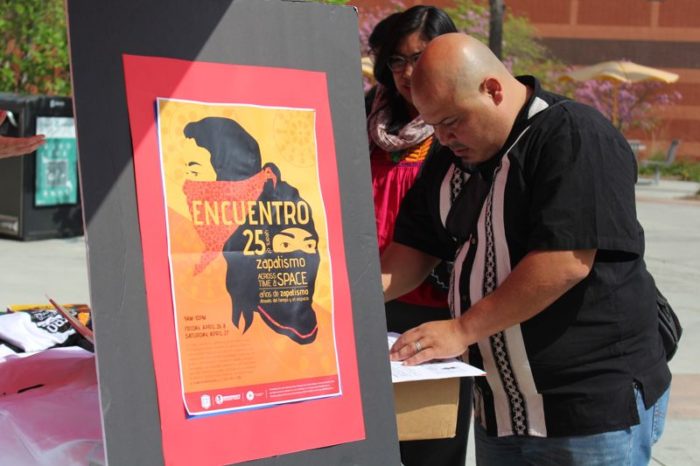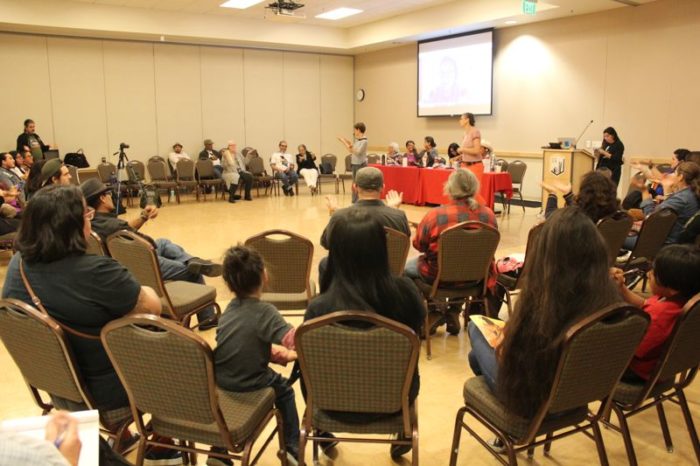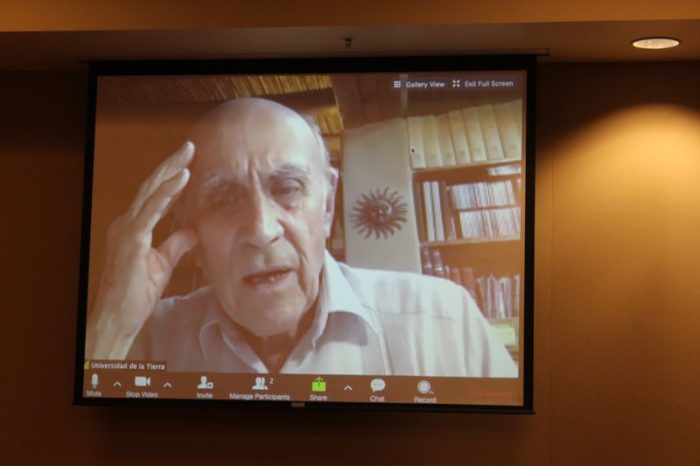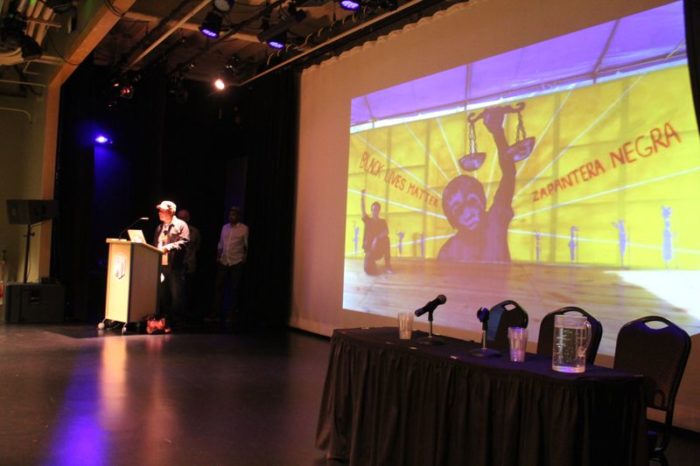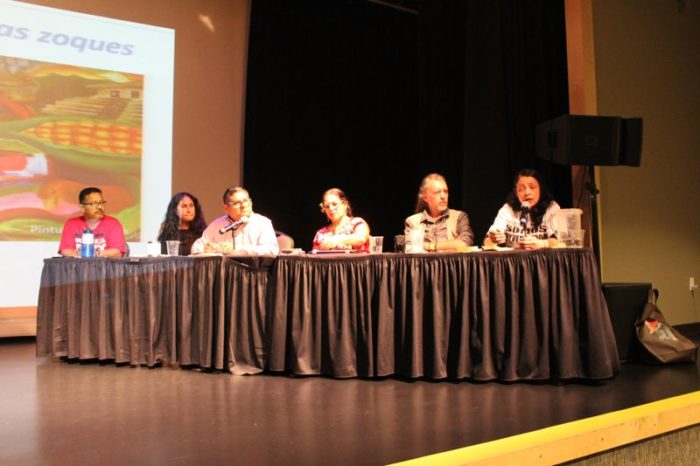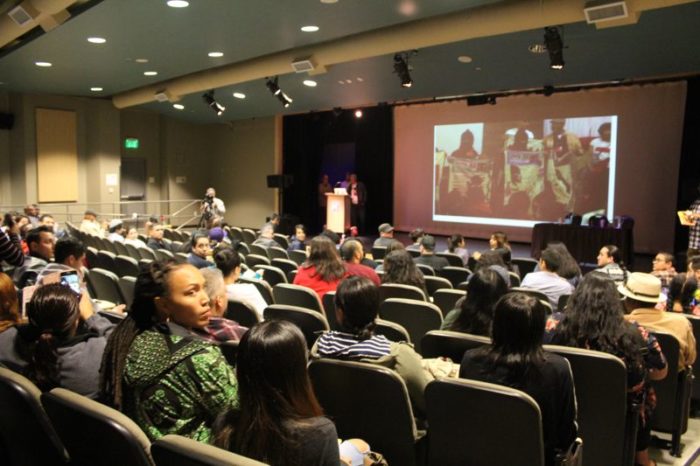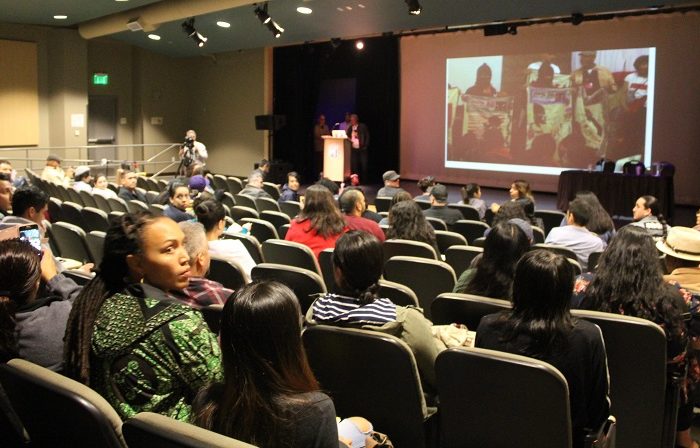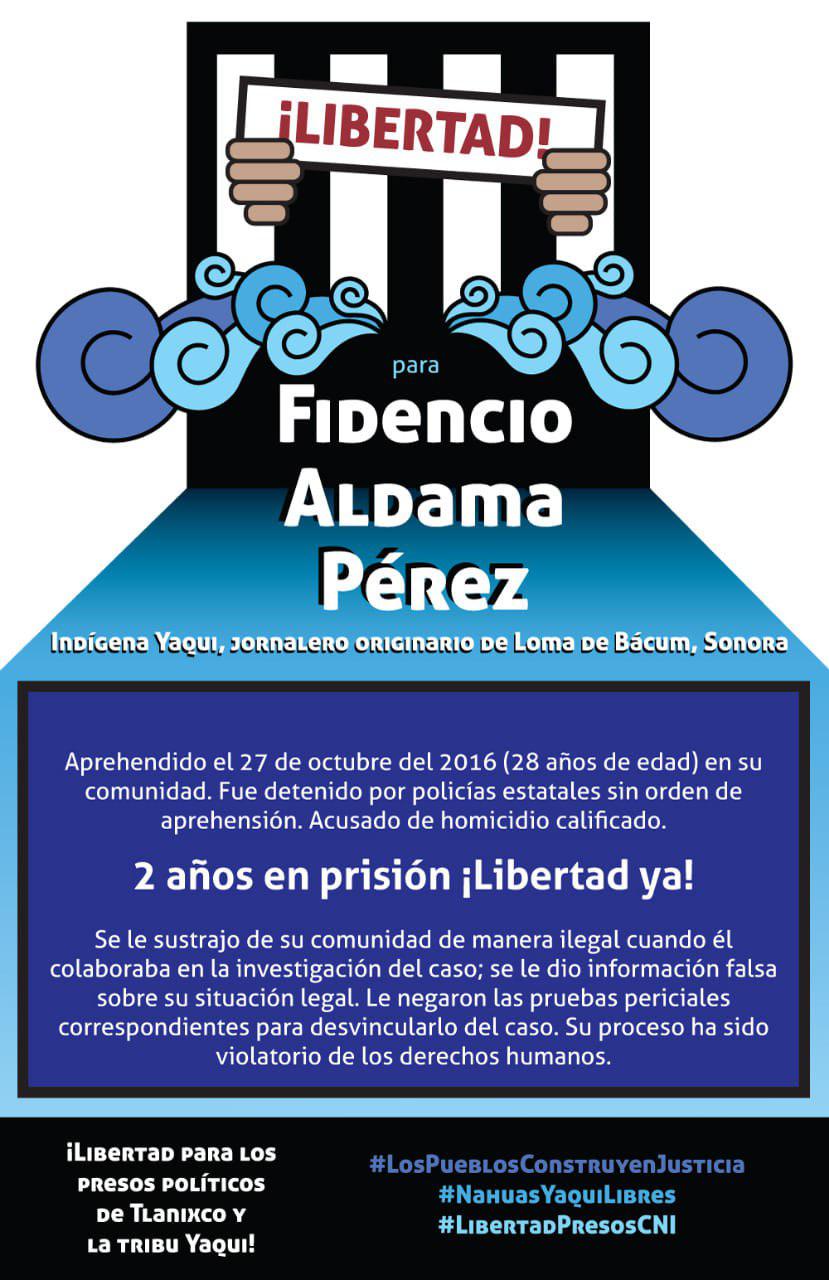
Topics

First Binational Encounter of Women Who Fight
Echoing the call of the Zapatista women to Organize in our times, our ways, in our spaces, we are calling all women who fight, who resist, who are working for a world where dignity is the norm and justice is served.
We, members of different collectives and organizations from the U.S-Mexican border and who make the seven Zapatista principles ours, too, have come together to convene and find each other in our distinctive latitudes, to listen to each other’s problems, causes, experiences in the struggle, resistance, wisdoms and pains.
The urgent need to organize comes precisely from the context in which our Zapatistas brothers and sisters are in, where they constantly suffer under the direct military brunt and divisive tactics that seem to never end government to government.
In that same context, it is no surprise the rise of persecutions, repressions, feminicides, and enforced disappearances. Not only do our sisters suffer under the paramilitaries that repress them, but also, the discrimination, exploitation, the racist and fascist attacks; which are all too familiar to those who fight on both side of the border and its wall.
For these reasons, the first binational encounter of women who fight will revolve around the following 4 themes:
A. Art
B. Body-Territory
C. Migration
D. Organizing and Resistance
We are calling all the women and girls, who are working class, office workers, students, artist, feminists, agricultural workers, indigenous, collectives and militants, to keep the light the Zapatistas gifted us burning, so that through this first binational encounter, we can continue creating networks and liaisons in our fight. We need to respond to the national emergencies–the patriarchal, necrocapitalist, and fascist system—in an effectively organized front, even more so when the Right hides behind the so-called Left.
We recognize the pluralities of bodies from within their own epistemic and territorial development and expression. Their presence is of imminent importance.
If you want to participate, either to collaborate or to share a workshop, please email us at encuentrobinacionaldemujeres@gmail.com
To multiply the light into many lights that will illuminate the darkness!
To regenerate the community and our social fabric!
To organize from the bottom-up and to the left, where our hearts lay!
Never a world without us, ever again!
https://m.facebook.com/story.php?story_fbid=2334976150116302&id=100008118195459&sfnsn=mo
Teléfonos.
686 180 44 18 Silvia Reséndiz Flores
686 348 34 52 Diana Gabriela Aranguré Quevedo
(Español) Comunicado del Concejo Indígena y Popular de Guerrero – Emiliano Zapata (CIPOG-EZ), por el asesinato impune de nuestros hermanos José Lucio Bartolo Faustino y Modesto Verales Sebastián
Al Ejercito Zapatista de Liberación Nacional
Al Congreso Nacional Indígena
Al Concejo Indígena de Gobierno
A los pueblos de Guerrero
A los pueblos de México
A la sexta nacional e internacional
A las redes de resistencia y rebeldía
A las redes de apoyo al CIG
Territorio Comunitario, Guerrero, 7 de Mayo de 2019
El CIPOG-EZ es la casa de los pueblos Na Savi, Me´pháá, Nahua, Ñamnkué y Afromexicanos del estado de Guerrero. Reconocemos nuestra historia reciente desde 1992 cuando comenzamos a luchar por nuestro derecho a la autonomía y libre determinación, constituimos el Consejo Guerrerense 500 años de Resistencia que creció con el surgimiento del Ejército Zapatista de Liberación Nacional y se articuló con el Congreso Nacional Indígena. Así llegamos hasta el 2001, luchando para que los Derechos y la Cultura indígena fueran reconocidos en la constitución, pero ningún partido, ningún político profesional quiso frenar la guerra de exterminio que aún continua.
En la Costa Montaña de Guerrero nuestras comunidades llevaron a la práctica nuevas formas de gobierno comunitario, constituyendo sus propias instituciones. Nació la Policía Comunitaria en 1995 y la Coordinadora Regional de Autoridades Comunitarias en 1998. Así se demostró que entre las montañas, entre la miseria y la represión en la que nos han tenido sumidos, los pueblos somos capaces de recuperar la paz y la tranquilidad. Estos modos de organización y de gobierno tampoco fueron inventados, vienen de cinco siglos de resistencia indígena y de nuestras experiencias como pueblos.


